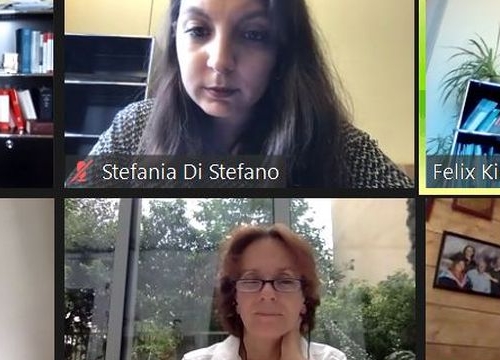First Meeting of the Geneva Human Rights Platform Advisory Board


Geneva Academy
8 June 2020
The Advisory Board of the Geneva Human Rights Platform (GHRP) – Virginia Brás Gomez, Sarah H. Cleveland, Miloon Kothari, Florence Simbiri-Jaoko and Valentin Zellweger – met for the first time on 4 June.
Composed of leading human rights experts and practitioners from different regions and backgrounds, it provides guidance to the GHRP Executive Director regarding the GHRP’s strategy, priorities and activities.
‘Given the current situation related to the COVID-19 pandemic, we had this first meeting online. Besides discussing the role of the Advisory Board, we exchanged around activities, priorities and focus for the GHRP in the upcoming years’ explains Felix Kirchmeier, Executive Director of the GHRP.
‘It is very important for us to get feedback and guidance regarding the relevance of our work from such experts and practitioners with extensive experience in human rights at the local, regional and international levels. I am delighted and grateful that they all accepted this role without hesitation’ he adds.
Additional Focus for the Annual Conference
In the meeting, Advisory Board members exchanged around their role, current human rights challenges and issues, as well as the GHRP strategy and activities.
‘An important impetus from the Advisory Board was the additional perspective on the impact of the COVID crisis, which will be integrated into the upcoming annual conference of the platform, which will take place on 15 October in Geneva’ says Felix Kirchmeier.
About the Geneva Human Rights Platform
The GHRP provides a neutral and dynamic forum of interaction in Geneva for all stakeholders in the field of human rights – experts, practitioners, diplomats and civil society – to debate topical issues and challenges related to the functioning of the Geneva-based human rights system. Relying on academic research and findings, it works to enable various actors to be better connected, break silos, and, hence, advance human rights.
As a ‘Mechanisms Lab’, the GHRP supports the international community to engineer solutions to ensure the sustainable functioning of the Geneva-based human rights mechanisms and bodies, allowing them to address human rights challenges effectively.







